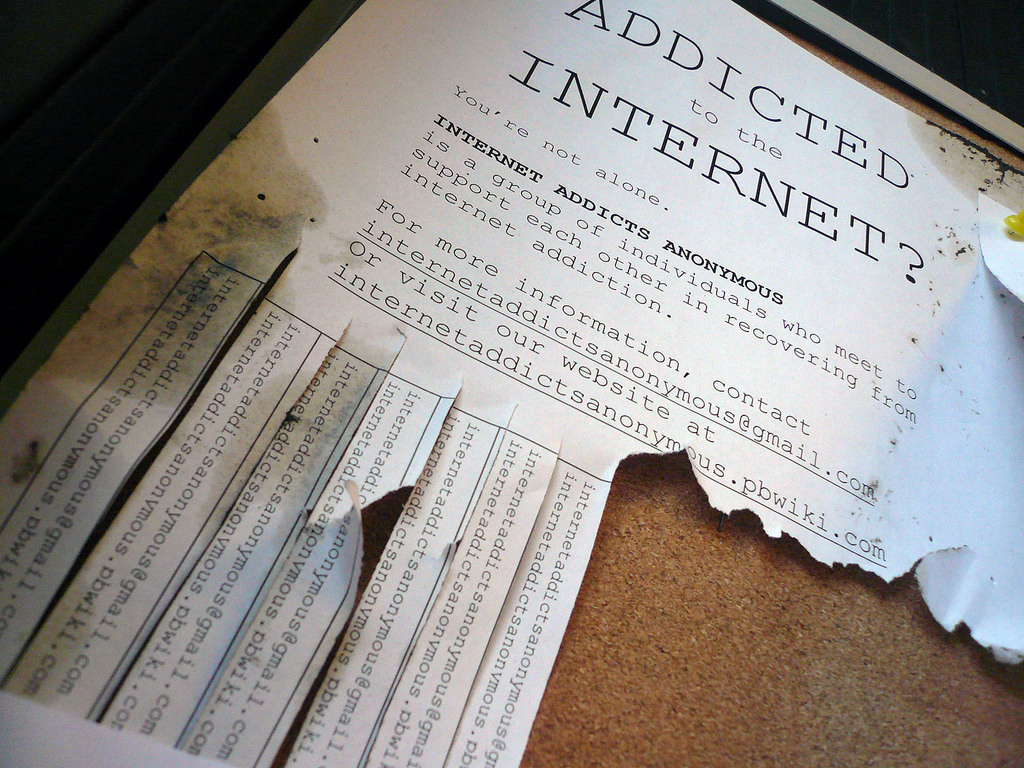 Internet is now an integral, even inescapable part of many people’s daily lives. Although it has various uses and applications, one of the most popular aspects of internet is the ease with which it facilitates social interaction. Using applications such as email, instant messenger (IM), Voice over Internet protocol (VOIP), social networking sites, blogs, and discussion forums, people from around the world are able to connect with one another in ways that would have previously been difficult, costly, or impossible.
Internet is now an integral, even inescapable part of many people’s daily lives. Although it has various uses and applications, one of the most popular aspects of internet is the ease with which it facilitates social interaction. Using applications such as email, instant messenger (IM), Voice over Internet protocol (VOIP), social networking sites, blogs, and discussion forums, people from around the world are able to connect with one another in ways that would have previously been difficult, costly, or impossible.
We already have published an article on the various mental health disorders caused by the excessive use of Internet. You can click on the link Mental Health Issues with Excessive Use of Internet.
Psychological dependence upon internet can make you an internet addict. Internet was introduced as a disorder by Young in her seminal paper “Internet Addiction: The emergence of a new clinical disorder” in 1996. Different terms have been proposed: internet dependency, internet addiction, pathological internet use ,problematic internet use compulsive computer use, virtual addiction, internet use disorder.
Internet addiction may not be same as substance addiction like drug or alcohol but share certain common characteristics: salience, compulsive use (loss of control), mood modification and alleviation of distress, tolerance and withdrawal and the continuation despite negative consequences. An Internet addict can experience a form of withdrawal symptoms and unable to function normally without regular online contact. One would find it very stressful to stay off the Internet for long. These people may experience problems in real-life social and academic functioning.
Researchers have also linked compulsive Internet use to a range of mental health concerns including low self-esteem, loneliness, depression, social phobia, and even suicidal thoughts. Internet Addiction Disorder (IAD) has potential to ruin lives by causing neurological complications, psychological disturbances and social problems.
Do you want to know that you are addicted to internet. Here, I am enumerating five diagnostic criteria for a diagnosis of Internet addiction.
How to Know you are Addicted to Internet?
(1) Is preoccupied with the Internet (thinks about previous online activity or anticipate next online session
(2) Needs to use the Internet with increased amounts of time in order to achieve satisfaction;
(3) Has made unsuccessful efforts to control, cut back, or stop Internet use
(4) Is restless, moody, depressed, or irritable when attempting to cut down or stop Internet use
(5) Has stayed online longer than originally intended.
Additionally, at least one of the following must be present:
(6) Has jeopardized or risked the loss of a significant relationship, job, educational or career opportunity because of the Internet;
(7) Has lied to family members, therapist, or others to conceal the extent of involvement with the Internet;
(8) Uses the Internet as a way of escaping from problems or of relieving a dysphoric mood (e.g., feelings of helplessness, guilt, anxiety, depression.
Risk Factors Associated with Internet Addiction
Risk factors for suggesting these factors contribute to an increased vulnerability for developing Internet-use related problems:
– Sociodemographic variables (including male gender, younger age, and higher family income)
– Internet use variables (including time spent online, using social and gaming applications)
– psychosocial factors (including impulsivity, neuroticism, and loneliness), and
– comorbid symptoms (including depression, anxiety, and psychopathology in general),
References
Beard KW. Internet addiction: a review of current assessment techniques and potential assessment questions. CyberPsychology & Behavior. 2005 Feb;8(1 ):7–14. [PubMed]
Proposed diagnostic criteria for internet addiction.Tao R, Huang X, Wang J, Zhang H, Zhang Y, Li M.Addiction. 2010 Mar;105(3):556-64. doi: 10.1111/j.1360-0443.2009.02828.x.
Internetaddiction and problematic Internet use: A systematic review of clinical research. Daria J Kuss and Olatz Lopez-Fernandez. World J Psychiatry. 2016 Mar 22; 6(1): 143–176. Published online 2016 Mar 22. doi: 10.5498/wjp.v6.i1.143




